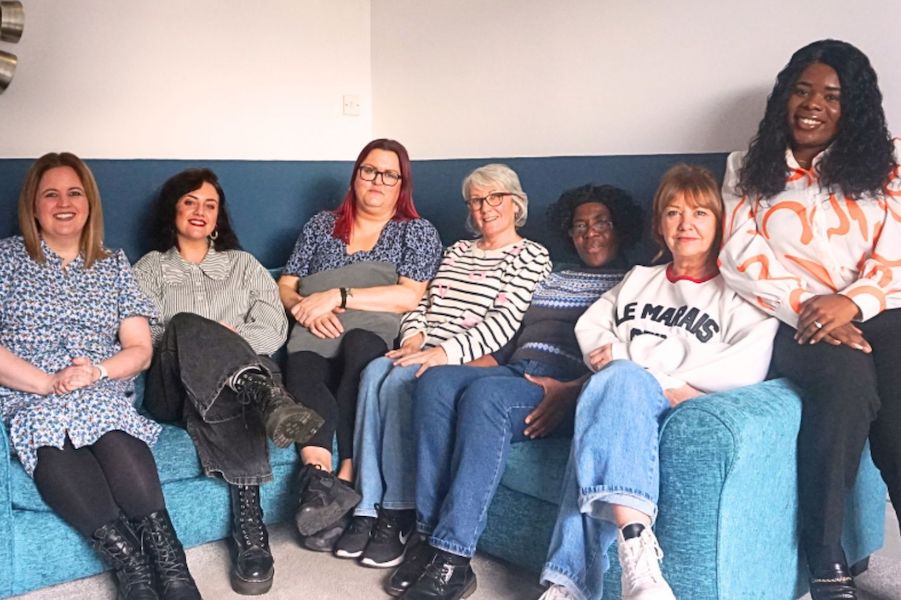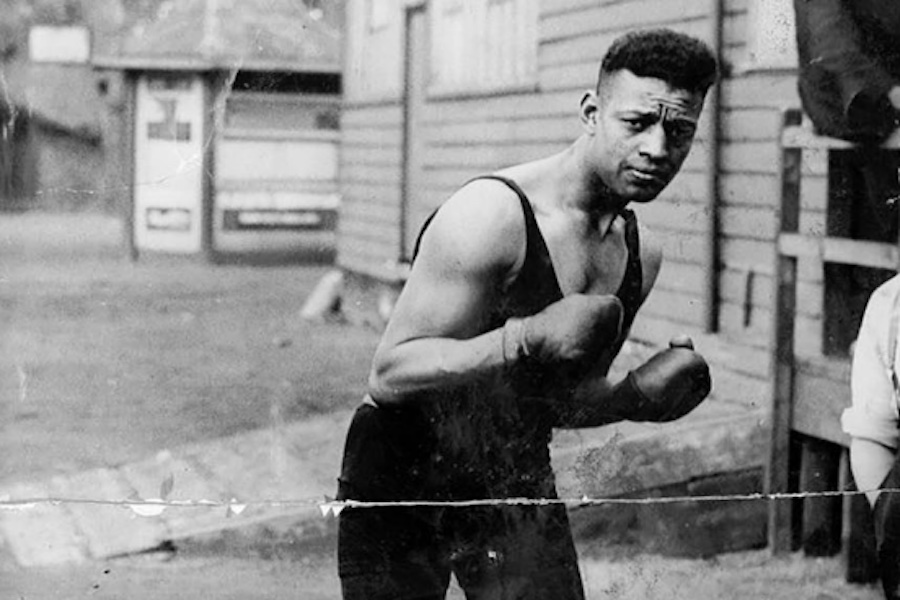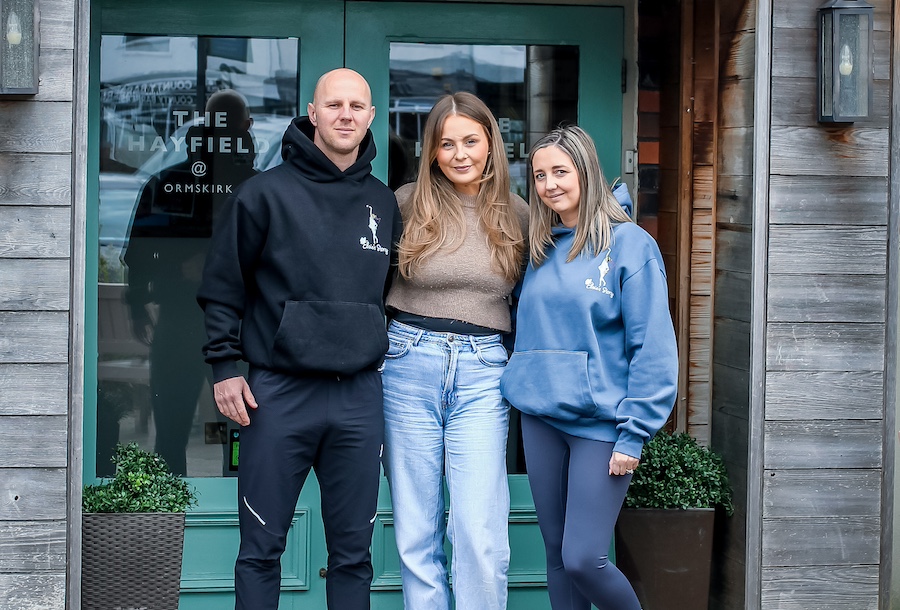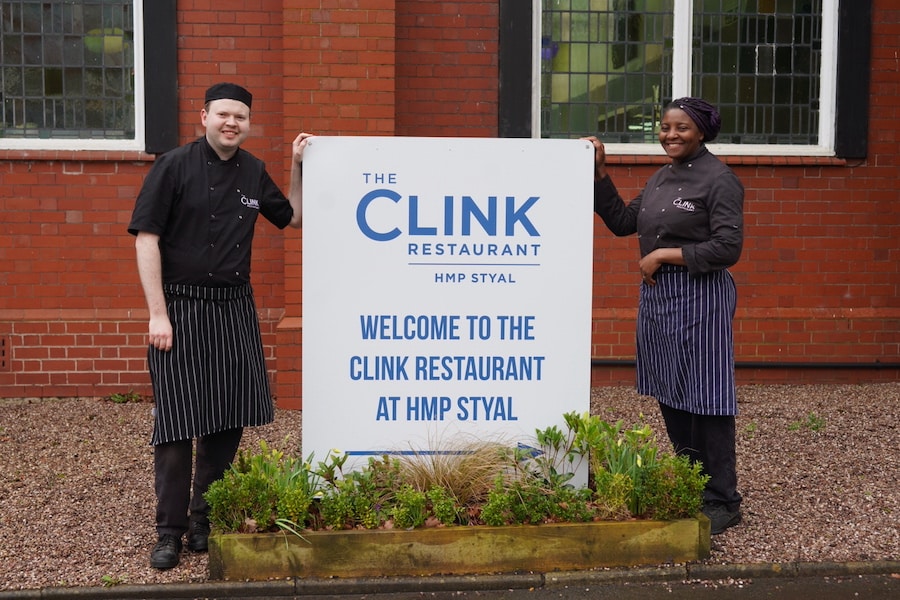The unbelievable story of the defiant woman who changed the world
- Written by Thom Bamford
- Last updated 1 year ago
- City of Manchester, Cornerstone, Featured, History
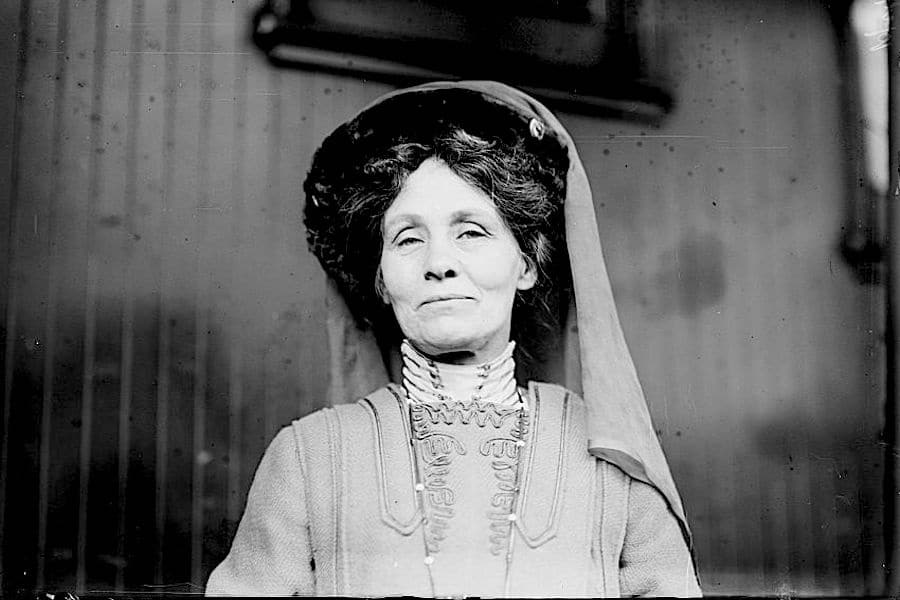
July 15th marks the Birthday of a Manchester legend, arguably one of the greatest Mancunians to have lived, Emmeline Pankhurst.
Emmeline Pankhurst, born on July 15, 1858, in Manchester, was a legendary British women’s rights activist who played a crucial role in the fight for women’s suffrage and securing their right to vote.
She was voted the UK’s greatest Northerner six years ago, and it was no surprise.
Most of Manchester’s young people will know who she is too, such as her importance, that a film about her life is shown in all Manchester Schools
Hailing from a family with a long-standing tradition of radical politics, she was influenced by her upbringing and developed a deep passion for social justice from an early age.
The History of Emmeline Pankhurst
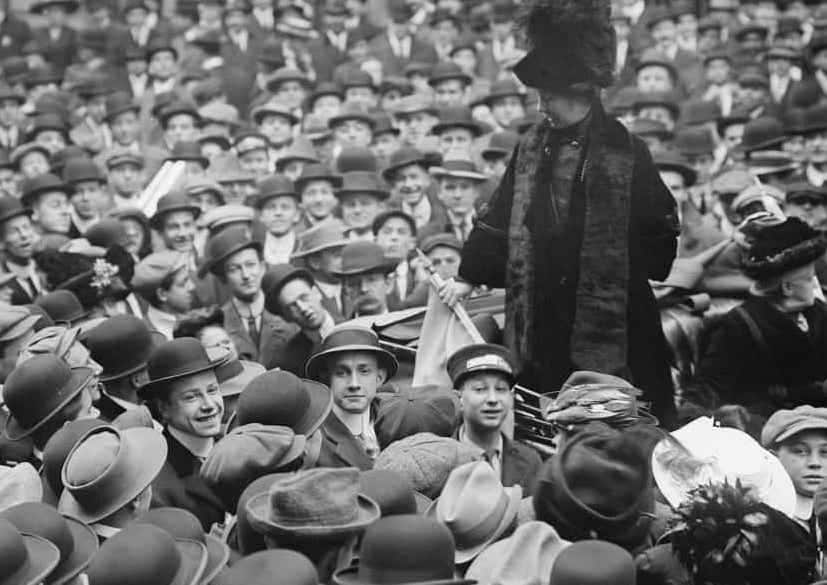
Emmeline Pankhurst was born on 14 July 1858 in Moss Side, Manchester.
Her family were very wealthy and her parents were both politically active.
As she grew older, Emmeline noticed that women were treated differently than men and became motivated to help change that.
The Married Women’s Property Act of 1870 and 1882
In 1879, Emmeline married Richard Pankhurst, a lawyer and advocate for the women’s suffrage movement.
Richard authored the Married Women’s Property Acts of 1870 and 1882, groundbreaking legislation that granted women the right to retain their earnings and property acquired both before and after marriage.
However, the untimely death of her husband in 1898 had a profound impact on Emmeline’s life, serving as a catalyst for her increased involvement in the suffrage cause.
The Women’s Franchise League
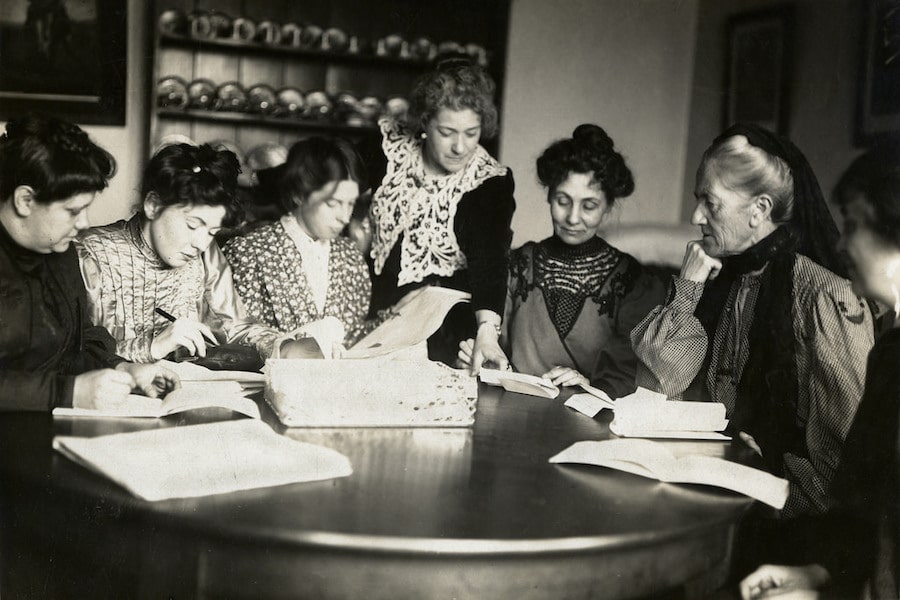
In 1889, Emmeline founded the Women’s Franchise League, an organisation dedicated to fighting for the right of married women to vote in local elections.
However, realising that more militant action was necessary to achieve their goals, she played a pivotal role in establishing the Women’s Social and Political Union (WSPU) in October 1903.
“We are here, not because we are law-breakers; we are here in our efforts to become law-makers.” – Emmiline Pankhurst
This organisation gained notoriety for its radical tactics and became known as the “suffragettes.”
Their aim was to gain equal voting rights for women. Emmeline gave speeches encouraging women to take action in order to achieve this goal.
You can check out one of their first banners at the People’s History Museum in Manchester.
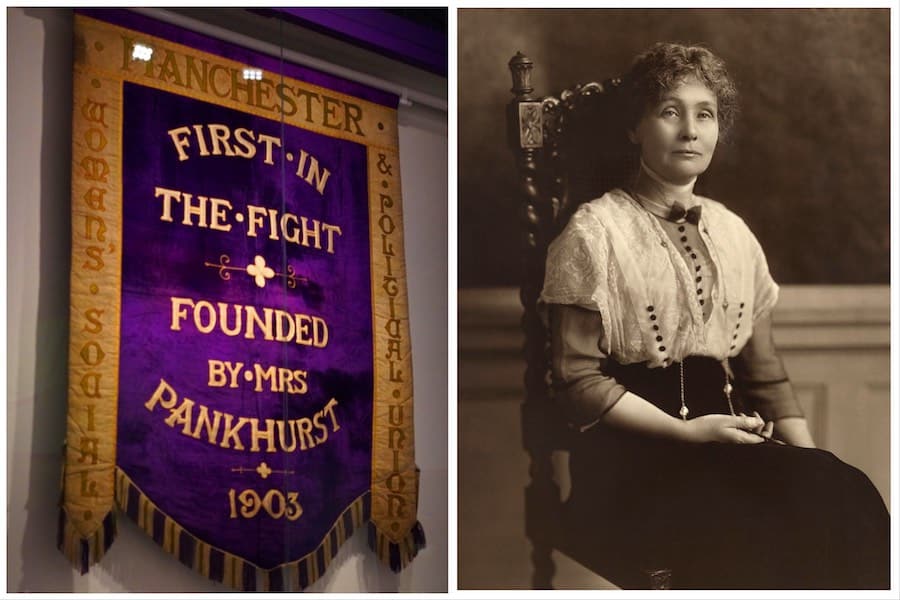
Emmeline, Christabel and Sylvia Pankhurst
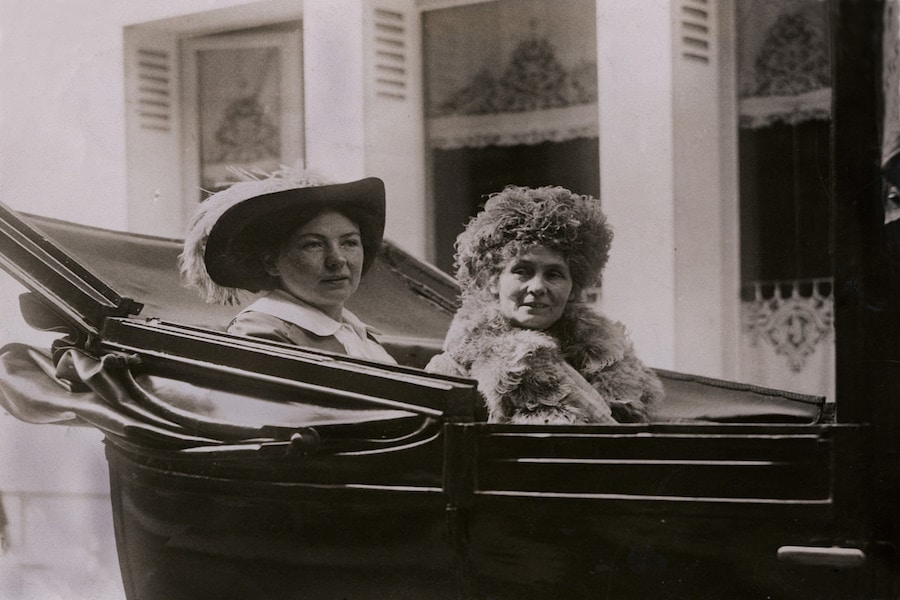
Emmeline’s daughters, Christabel and Sylvia Pankhurst were also actively involved in the WSPU, demonstrating the family’s commitment to the cause.
The suffragettes shocked British politicians, the press, and the public with their daring demonstrations, which often involved window smashing, arson, and hunger strikes.
This got many women in trouble with the police and some were even sentenced to time in prison, where they were treated very badly.
When the stories of bad treatment reached the newspapers, it actually helped to increase support and galvanise the actions of the suffragette movement.
One of the most tragic incidents occurred in 1913 when Emily Davison, a member of the WSPU, sacrificed her life by throwing herself under the king’s horse at the Derby as a protest against the government’s refusal to grant women the right to vote.
Emmeline herself faced numerous arrests and imprisonments in the years that followed.
During her incarcerations, she resorted to hunger strikes, leading to the brutal practice of force-feeding by the authorities.
In response to the suffragettes’ hunger strikes, the government enacted the infamous “Cat and Mouse” Act in 1913.
Under this legislation, hunger-striking prisoners were temporarily released until they regained their strength, only to be rearrested shortly after.
World War I
The outbreak of World War I in 1914 brought an abrupt end to the suffragettes’ militant activities.
Emmeline Pankhurst encouraged WSPU members to put their demonstrations on hold, in order to focus on the war effort.
Emmeline asked women to take up roles in factories in support of the men fighting. In response, the government released all WSPU prisoners.
Emmeline redirected her energies toward supporting the war effort, believing that women’s active participation in the war would demonstrate their deservingness of the vote.
Alongside her daughter Christabel, she worked to mobilise women for war-related work.
However, Emmeline’s daughter Sylvia held a contrasting view and opposed the war.
Sylvia focused her efforts on alleviating the suffering of working women in London’s East End.
Despite their differing perspectives on the war, the Pankhurst family remained committed to the overarching goal of women’s suffrage.
The Representation of the People Act
When the war ended in 1918, the Representation of the People Act was introduced, giving women over the age of 30 who owned property, the right to vote.
The Representation of the People Act marked a significant milestone in the fight for women’s rights by granting voting rights to women over the age of 30.
Emmeline’s tireless efforts and unwavering commitment to the cause contributed to this historic achievement.
Tragically, she passed away on June 14, 1928, shortly after women were finally granted equal voting rights with men at the age of 21.
The Emmeline Pankhurst Statue
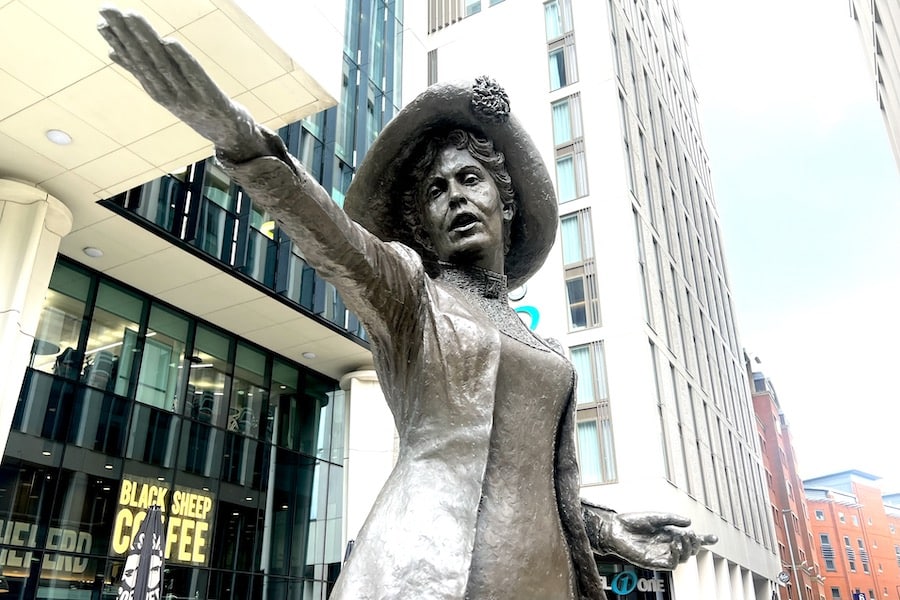
Emmeline Pankhurst’s legacy as a pioneer and champion of women’s suffrage is celebrated to this day.
On the Woman’s March in 2017, people from all across the UK celebrated the Spirit of Pankhurst as they took the streets.
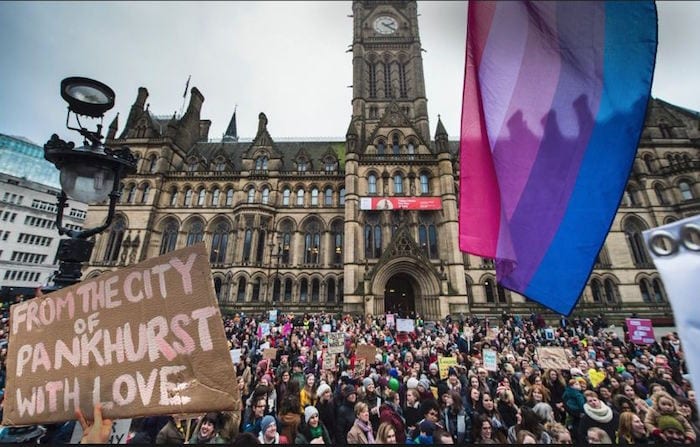
Her statue, partly funded by the Government Equalities Office’s Centenary Fund, was unveiled in Manchester’s St. Peter’s Square in November 2018.
The statue, created by renowned sculptor Hazel Reeves, depicts Emmeline standing on a chair, passionately urging her audience to support women’s suffrage.
It serves as a powerful symbol of her enduring impact and is only the second statue of a woman in Manchester, a testament to her legendary status in the city’s history.
I Love MCR celebrates the life and legacy of Emmeline Pankhurst at our awards ceremony every year
The Emmeline Pankhurst Award should be given to an individual or group who has made significant contributions to advancing gender equality, women’s rights and empowerment, and women’s political participation throughout the Greater Manchester area and beyond.
From all at I Love MCR, happy birthday to a Manchester legend.
Want to know more? Why not check out the Pankhurst Centre’s website by clicking here
- This article was last updated 1 year ago.
- It was first published on 13 July 2023 and is subject to be updated from time to time. Please refresh or return to see the latest version.
Did we miss something? Let us know: press@ilovemanchester.com
Want to be the first to receive all the latest news stories, what’s on and events from the heart of Manchester? Sign up here.
Manchester is a successful city, but many people suffer. I Love Manchester helps raise awareness and funds to help improve the lives and prospects of people across Greater Manchester – and we can’t do it without your help. So please support us with what you can so we can continue to spread the love. Thank you in advance!
An email you’ll love. Subscribe to our newsletter to get the latest news stories delivered direct to your inbox.
Got a story worth sharing?
What’s the story? We are all ears when it comes to positive news and inspiring stories. You can send story ideas to press@ilovemanchester.com
While we can’t guarantee to publish everything, we will always consider any enquiry or idea that promotes:
- Independent new openings
- Human interest
- Not-for-profit organisations
- Community Interest Companies (CiCs) and projects
- Charities and charitable initiatives
- Affordability and offers saving people over 20%
For anything else, don’t hesitate to get in touch with us about advertorials (from £350+VAT) and advertising opportunities: advertise@ilovemanchester.com

Major rail investment set to transform Manchester-Leeds commutes

“His presence will be deeply missed” Children’s hospice bids farewell to their visionary CEO

The Clink celebrates ten years of empowerment and second chances

Has Gordon Ramsay created Manchester’s ultimate bottomless brunch?
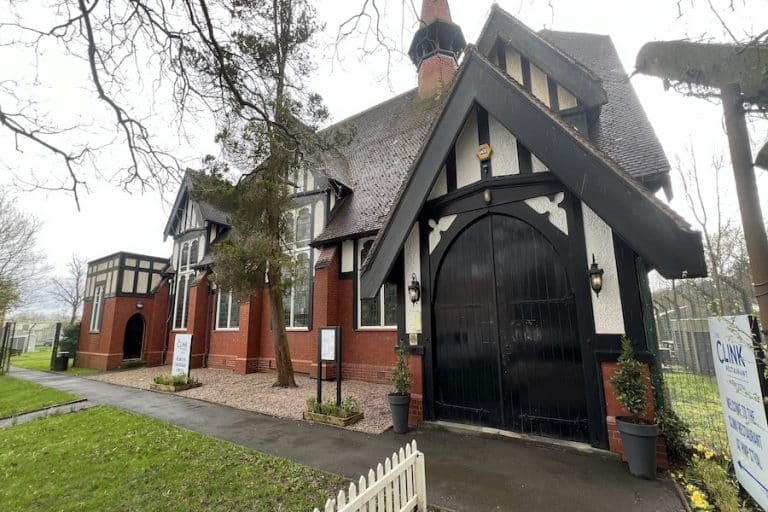
Enjoy a taste of redemption at this incredible Styal restaurant







